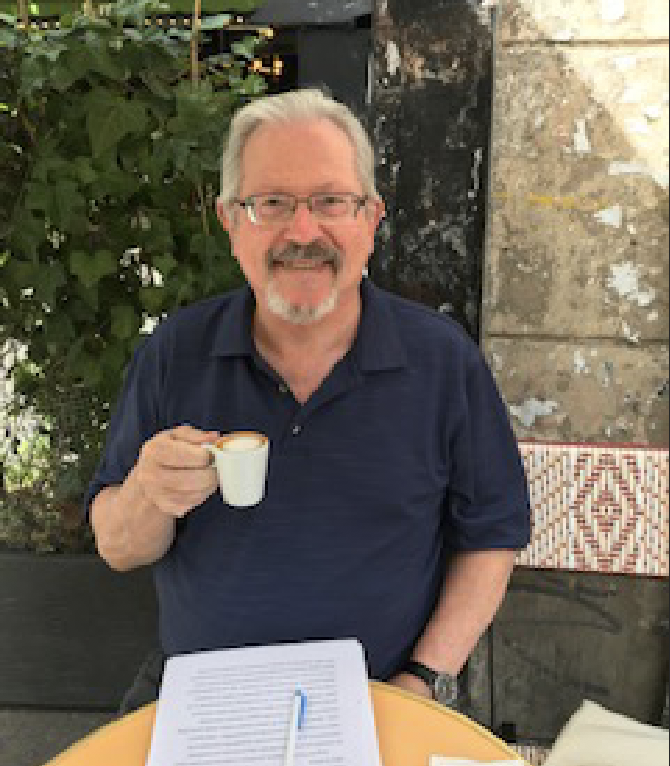Brian Richardson

Professor of English and Comparative Literature, English
Affiliate Professor, American Studies
richb@umd.edu
3233 Tawes Hall
Get Directions
Brian Richardson’s major areas of research are international modernism, postmodernism, narrative theory, and the history of the novel. He has published seven books, edited twelve collections of essays, and published over 100 peer reviewed articles and book chapters. These deal with a range of topics, including modern fiction, narrative theory, reader response theory, the theory of fictionality, the narratives of literary history, aesthetic value, feminist analysis, and the poetics of modern drama. His current projects focus on modernist fiction.
His books on modernism include Unlikely Stories: Causality and the Nature of Modern Narrative (1997), which explores the roles of chance and cause in the work of Conrad, Woolf, Faulkner, Ellison, Beckett, and others. His book The Reader in Modernist Fiction (2024) analyses representations of characters as readers and the implications of their typically unfortunate fates for the practice of modernism and the theory of the reader. It includes substantial discussions of works by James, Conrad, Joyce, Wharton, Mansfield, Woolf, Faulkner, Beckett, Ellison, Calvino, and others. A study of the full range of Conrad’s narrative practices is nearing completion; its title is Conrad’s Narrative and the Making of Modernist Fiction. His next book will be a study of Joyce’s Ulysses.
Much of his work has been engaged with narrative theory as he attempted to expand existing models to be able to incorporate more radical techniques and practices of late modernist, avant-garde, and postmodern experimental fiction. Unlikely Stories: Causality and the Nature of Modern Narrative, is primarily about fictional worlds; its emphasis is on characters’ (and readers’) interpretations of the storyworld they inhabit and its governing causal system. His next monograph, Unnatural Voices (2005), explored unusual and impossible narrators and acts of narration. That book analyzed unusual voices in several of Beckett’s works and examined second- and first-person plural narration, multiperson narration, narrators in drama, and the implied author. It was awarded the Perkins Prize for the year’s best book in narrative studies. His book, A Poetics of Plot for the Twenty-first Century: Theorizing Unruly Narratives (2019), moves on to the stories themselves, how they are fabricated and how they are unfolded, and thus presents another pillar of an interconnected theory of fictional worlds, narration, and story. It includes chapters on beginnings, sequencing, plots, narrative time, endings, and the definition of narrative itself.
In the jointly authored volume, Narrative Theory: Core Concepts and Current Debates (2012), written with David Herman, James Phelan, Peter Rabinowitz, and Robyn Warhol, each scholar provides a condensed overview of their positions on several subjects: authors and narrators, story and temporality, narrative space, characters, readers and reception, and narrative and aesthetic value. The book was selected by Choice as an Outstanding Academic Title. Richardson has written another volume that elucidates the general theory and outlines the history of antirealist or “unnatural” narratives: Unnatural Narrative: History, Theory, and Practice (2015); this book includes a chapter on unnatural narratives by feminist, postcolonial, and U. S. Ethnic authors. In a recent volume he assembles a cluster of essays on these and adjacent topics: Essays in Narrative and Fictionality: Reassessing Nine Central Concepts (2021). The Reader in Modernist Fiction discusses several theories of reading and the reader. A volume of his selected writings on narrative theory has been translated into Czech. An additional volume on unnatural narrative theory will discuss impossible narrators, plots, minds, characters, space, and the unnatural reader.
He has edited or co-edited four anthologies: Narrative Dynamics: Essays on Time, Plot, Closure, and Frames (2002); Narrative Beginnings: Theories and Practices (2009); A Poetics of Unnatural Narratives (with Jan Alber and Henrik Skov Nielsen, 2013; paper 2015); and, with Jan Alber, Unnatural Narratology: Extensions, Revisions, and Challenges (2020). He also guest-edited two conference proceedings and six special issues of journals, including an issue of Style that was devoted to analyses of his work. His scholarly articles have appeared in ELH, New Literary History, Modern Fiction Studies, Twentieth Century Literature, Critique, Studies in the Novel, College English, Philological Quarterly, Comparative Literature Studies,Modern Drama, The James Joyce Quarterly, Partial Answers, and many other journals. His work has been translated into French, German, Czech, Chinese, Danish, Arabic, Portuguese, Turkish, Spanish, Magyar, Italian, and Farsi and is forthcoming in Polish. He served as president of the International Society for the Study of Narrative and of the Joseph Conrad Society of America. He serves on the editorial boards of Conradiana, Frontiers of Narrative Studies, and Compendium: Journal of Comparative Studies. He has given nine keynote addresses and seventy invited lectures in twenty countries, including Germany, Switzerland, the Netherlands, France, Finland, Spain, Norway, Italy, the United Kingdom, Sweden, Poland, Israel, China, and Singapore. He has taught at the University of Florida and the University of Tübingen, given Masterclasses at the University of Giessen, and has offered lecture series at Aarhus University (Denmark), the University of Bologna, the Hebrew University of Jerusalem, the University of Lisbon, Shanghai Jiao Tong University, and Masaryk University in Brno, Czech Republic.

